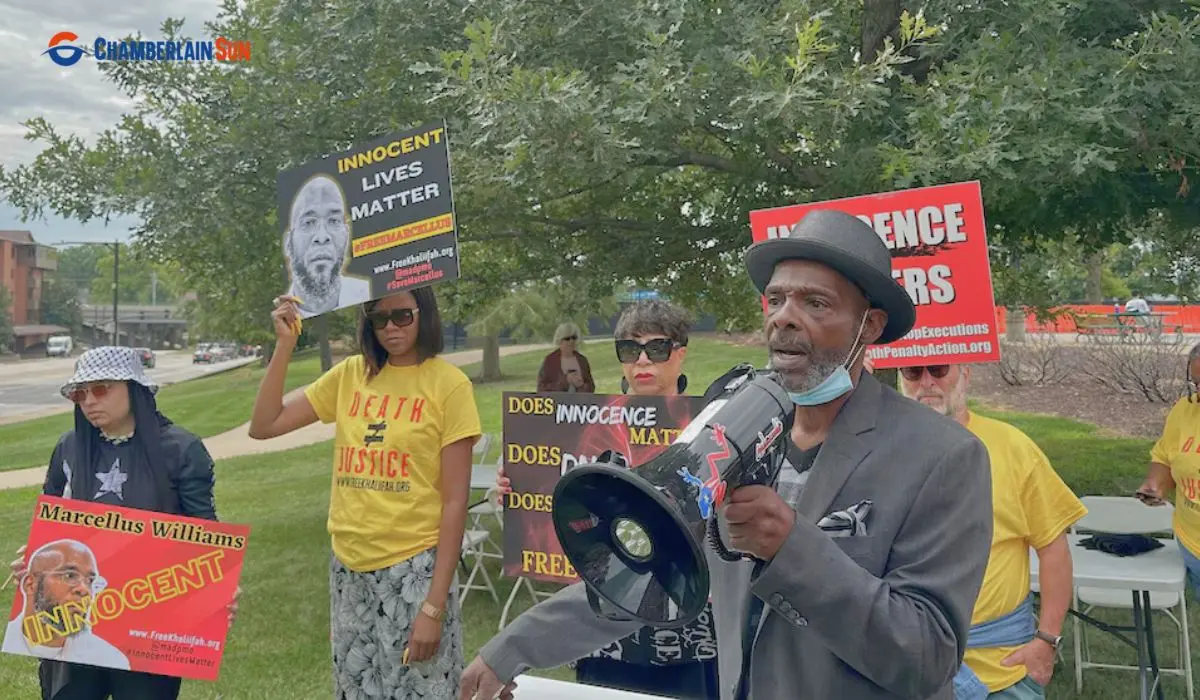In a dramatic turn of events, Marcellus Williams, a 55-year-old death row inmate in Missouri, has been granted another chance at a hearing that could potentially spare his life. This development comes as a result of new DNA evidence and a series of legal twists that have kept Williams’ fate in limbo for years.
The case, which dates back to a 1998 murder, has become a focal point in discussions about the death penalty, the reliability of evidence, and the role of prosecutorial discretion in the American justice system.
Key Guidelines
➡ Provide background on Marcellus Williams’ case
➡ Explain the significance of the new DNA evidence
➡ Discuss the legal maneuvers and their implications
➡ Highlight the role of the 2021 Missouri law in this case
➡ Examine the controversy surrounding the contaminated evidence
➡ Analyze the potential outcomes and their broader implications
➡ Compare this case to similar recent exonerations in Missouri
The Crime And Initial Conviction
In August 1998, Lisha Gayle, a former reporter for the St. Louis Post-Dispatch turned social worker, was brutally stabbed 43 times in her home in University City, a suburb of St. Louis. Marcellus Williams was arrested, tried, and convicted of her murder in 2001. The prosecution’s case relied heavily on circumstantial evidence, including testimony from Williams’ girlfriend and a jailhouse informant, both of whom were criticized by the defense as unreliable witnesses motivated by a $10,000 reward.

New Evidence and Legal Challenges
The case took a dramatic turn in 2017 when DNA testing, unavailable at the time of the original trial, revealed that Williams’ DNA was not present on the murder weapon. This discovery led to a stay of execution granted by then-Governor Eric Greitens just hours before Williams was scheduled to be put to death. The new evidence prompted St. Louis County Prosecuting Attorney Wesley Bell to reexamine the case, utilizing a 2021 Missouri law that allows prosecutors to file motions to vacate convictions they believe to be unjust.
The Contaminated Evidence Controversy
In a shocking twist, it was revealed in August 2023 that the key DNA evidence had been contaminated. New testing showed that DNA from Edward Magee, an investigator for the prosecutor’s office during Williams’ trial, was present on the knife. The testing also couldn’t exclude the original prosecutor, Keith Larner. This contamination has made it impossible to definitively prove that someone else may have been the killer, complicating Williams’ quest for exoneration.
Legal Maneuvering And Compromise
Following the revelation of the contaminated evidence, Williams’ lawyers and the prosecutor’s office reached a compromise. Williams would enter a new, no-contest plea to first-degree murder in exchange for a life sentence without parole, effectively removing him from death row. This agreement was initially approved by Judge Bruce Hilton and even accepted by Gayle’s family. However, the Missouri Attorney General’s Office, led by Republican Andrew Bailey, intervened and successfully blocked the agreement, insisting that the evidentiary hearing proceed as originally planned.
The Upcoming Hearing And Its Implications
Judge Hilton is now set to preside over an evidentiary hearing on September 24, 2023, less than four weeks before Williams’ scheduled execution date. The outcome of this hearing could have far-reaching implications, not just for Williams but for the broader debate on capital punishment and the handling of potentially exonerating evidence in criminal cases.
Comparison To Recent Missouri Exonerations
Williams’ case bears similarities to other recent high-profile exonerations in Missouri. Christopher Dunn, Lamar Johnson, and Kevin Strickland were all freed after decades in prison, thanks to successful challenges under the 2021 law that allows prosecutors to review potentially unjust convictions. These cases have highlighted the importance of post-conviction review and the willingness of prosecutors to rectify past errors.
The Role Of DNA Evidence And Prosecutorial Discretion
This case underscores the critical role that DNA evidence plays in modern criminal justice, while also highlighting its limitations when not properly preserved. It also brings to the forefront the importance of prosecutorial discretion and the ethical obligations of prosecutors to seek justice, even if it means challenging past convictions.
Broader Implications For The Death Penalty Debate
The Williams case adds fuel to the ongoing debate about the death penalty in the United States. Critics argue that cases like this demonstrate the inherent risks of irreversible punishment, especially in light of evolving forensic technologies that can reveal new evidence years after a conviction.
As Marcellus Williams awaits his hearing, his case serves as a stark reminder of the complexities and high stakes involved in capital punishment cases. The outcome of this hearing could not only determine Williams’ fate but also potentially influence future handling of death penalty cases and the use of post-conviction DNA evidence.
With the execution date looming and critical evidence compromised, the clock is ticking on a decision that could mean the difference between life and death for Marcellus Williams.

